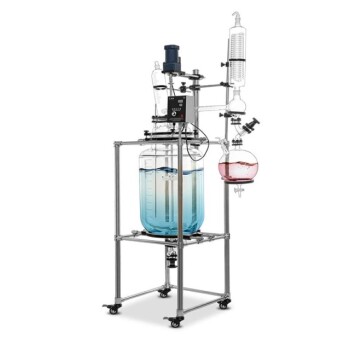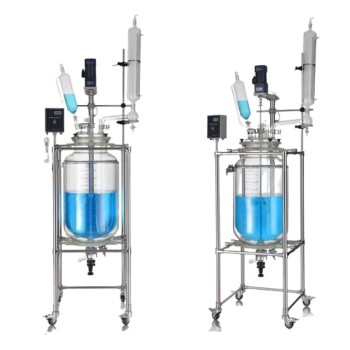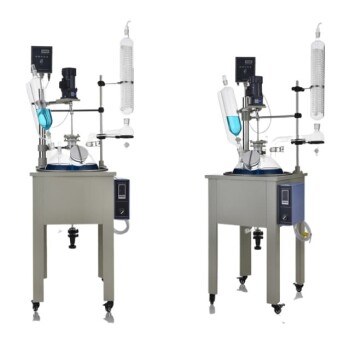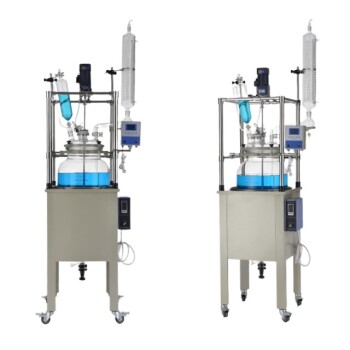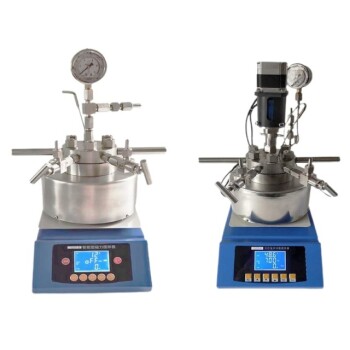Jacketed vessels are versatile equipment widely used across various industries for processes requiring precise temperature control, uniform mixing, and efficient chemical reactions. Their ability to maintain consistent internal conditions through heating and cooling media makes them indispensable in industries such as pharmaceuticals, food production, chemical processing, dyes, and petrochemicals. They are particularly useful for handling hazardous or sensitive materials, controlling exothermic reactions, and improving product quality. Applications range from distillation and crystallization to polymerization and hydrogenation, making them a critical component in modern industrial processes.
Key Points Explained:
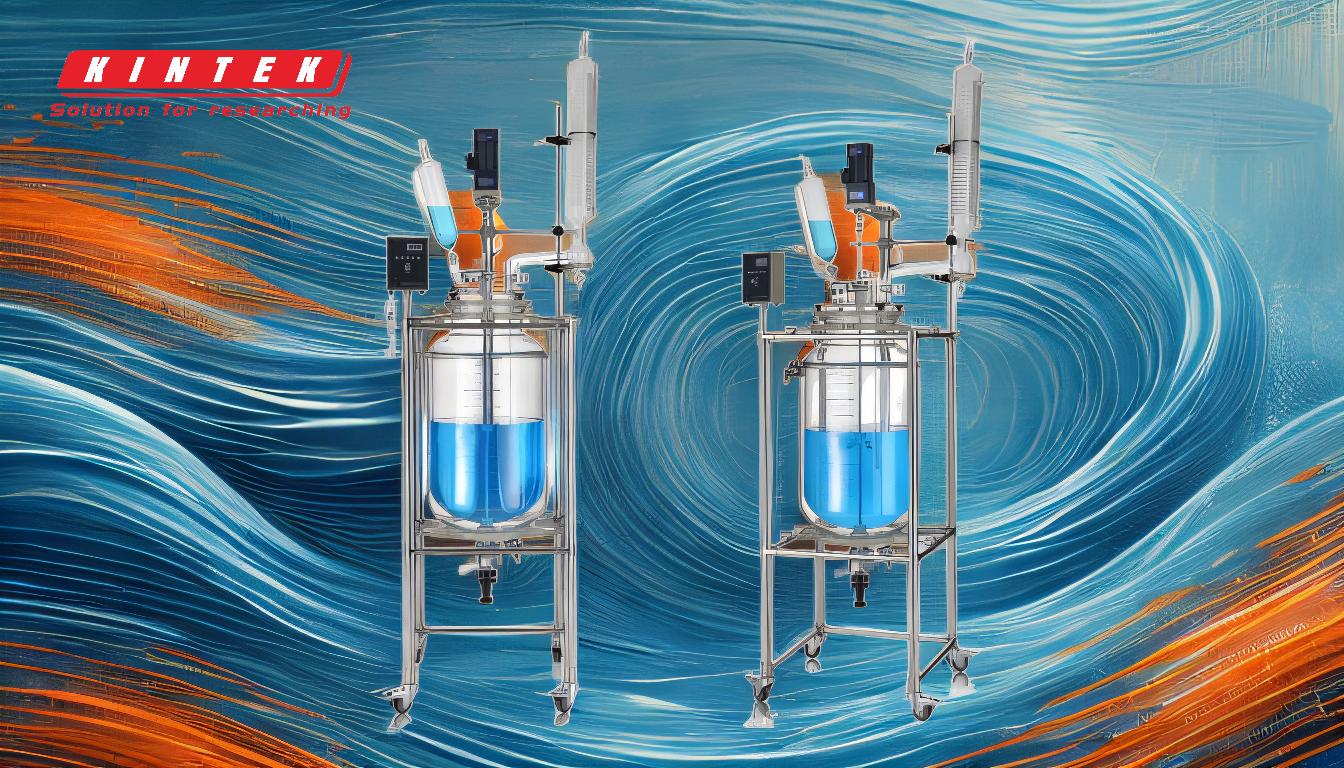
-
Temperature Control in Hazardous or Sensitive Processes
- Jacketed vessels are designed to maintain precise temperature control, which is crucial for handling hazardous or sensitive materials.
- They use heating and cooling media to ensure uniform internal conditions, preventing temperature fluctuations that could compromise product quality or safety.
- This feature is particularly valuable in industries like pharmaceuticals, where temperature-sensitive reactions must be carefully managed.
-
Applications in the Pharmaceutical Industry
- Jacketed reactors are extensively used in pharmaceutical manufacturing for processes such as API (Active Pharmaceutical Ingredient) production, crystallization, and extraction.
- They help control the heat of exothermic reactions, ensuring safe and efficient processing.
- Examples include the production of drugs, vaccines, and other medical compounds that require strict temperature regulation.
-
Role in Chemical Processing
- In the chemical industry, jacketed vessels are employed for processes like sulfonation, hydrogenation, nitration, polymerization, alkylation, and condensation.
- These processes often involve highly reactive or viscous materials that require precise temperature control and efficient mixing.
- Jacketed reactors enhance product quality by maintaining optimal reaction conditions.
-
Use in Food Production
- The food industry utilizes jacketed vessels for processes such as mixing, heating, and cooling ingredients.
- They are essential for maintaining consistent temperatures during food processing, ensuring product safety and quality.
- Examples include the production of sauces, dairy products, and beverages.
-
Applications in Petrochemical and Engine Oil Production
- Jacketed reactors are critical in the petrochemical industry for processes like distillation and refining.
- They help control reaction temperatures, improve product quality, and ensure safety in handling volatile substances.
- In engine oil production, they are used to manage the viscosity of highly viscous liquids and enhance the final product's performance.
-
Versatility in Dye and Pesticide Manufacturing
- Jacketed vessels are used in the dye and pesticide industries for processes that require controlled chemical reactions.
- They ensure uniform mixing and temperature regulation, which are essential for producing consistent and high-quality products.
- Examples include the synthesis of dyes, pigments, and agricultural chemicals.
-
Support for Complex Industrial Processes
- Jacketed reactors are employed in advanced processes such as distillation, post-processing, and crystallization.
- Their ability to handle a wide range of temperatures and pressures makes them suitable for diverse industrial applications.
- They are particularly useful in industries where precise control over reaction conditions is critical.
-
Advantages in Handling Viscous Liquids
- Jacketed vessels are effective in reducing the viscosity of highly viscous liquids, making them easier to process.
- This is particularly important in industries like petrochemicals and food production, where viscosity control is essential for efficient manufacturing.
In summary, jacketed vessels are indispensable in industries requiring precise temperature control, uniform mixing, and efficient chemical reactions. Their versatility and ability to handle hazardous or sensitive materials make them a cornerstone of modern industrial processes.
Summary Table:
| Industry | Applications |
|---|---|
| Pharmaceuticals | API production, crystallization, exothermic reaction control |
| Chemical Processing | Sulfonation, hydrogenation, nitration, polymerization |
| Food Production | Mixing, heating, cooling of sauces, dairy, and beverages |
| Petrochemicals | Distillation, refining, engine oil viscosity control |
| Dye Manufacturing | Synthesis of dyes, pigments, and agricultural chemicals |
| Advanced Processes | Distillation, post-processing, crystallization for precise reaction control |
Want to learn how jacketed vessels can optimize your industrial processes? Contact us today for expert advice!

